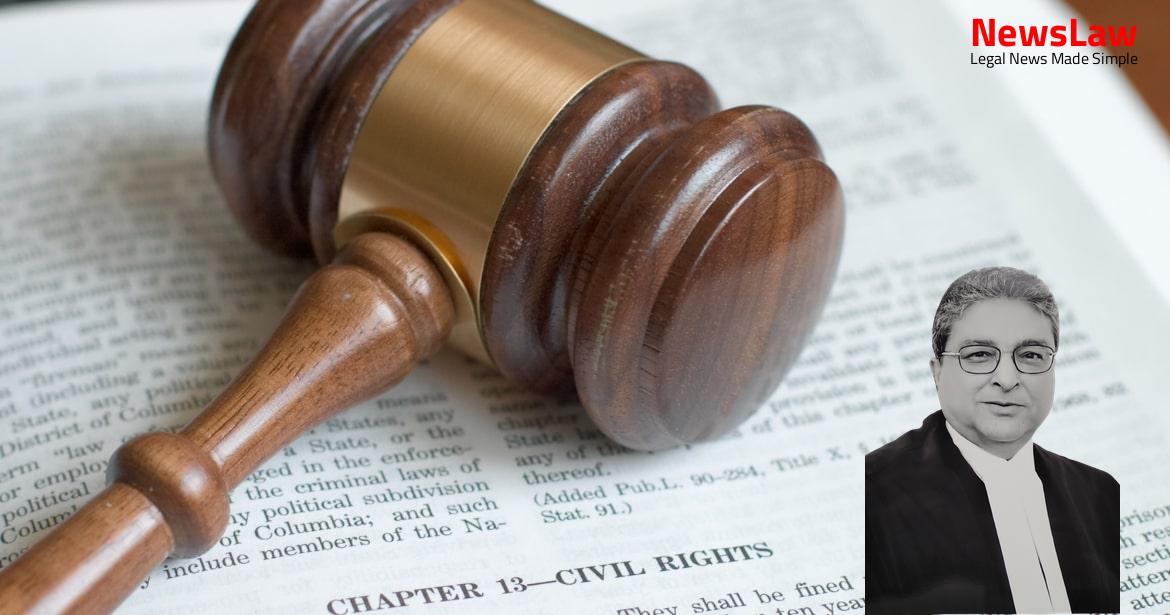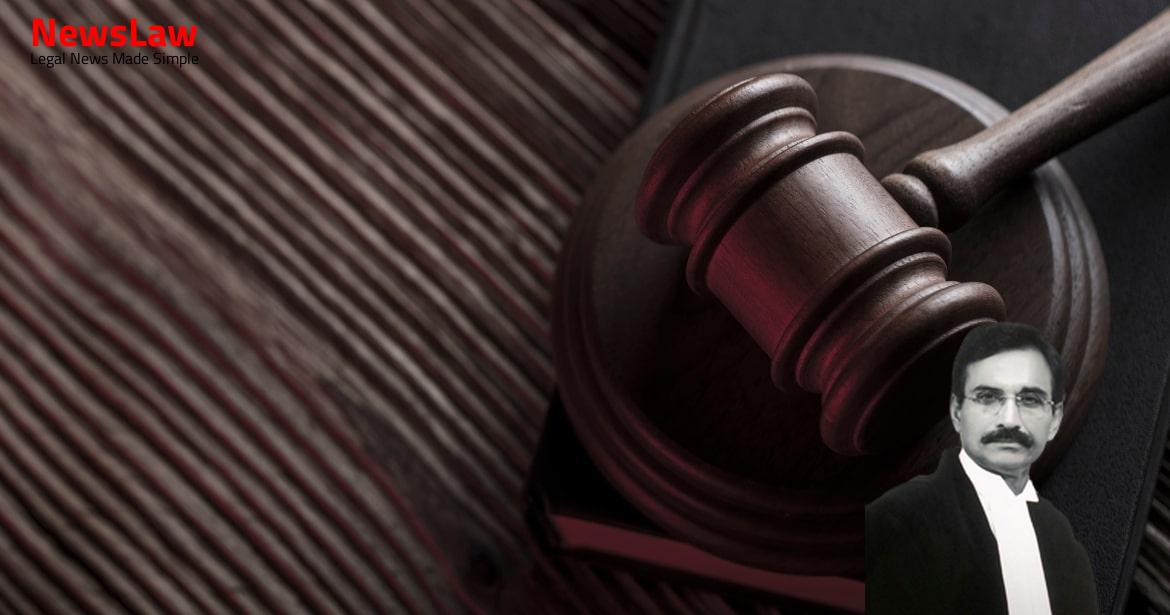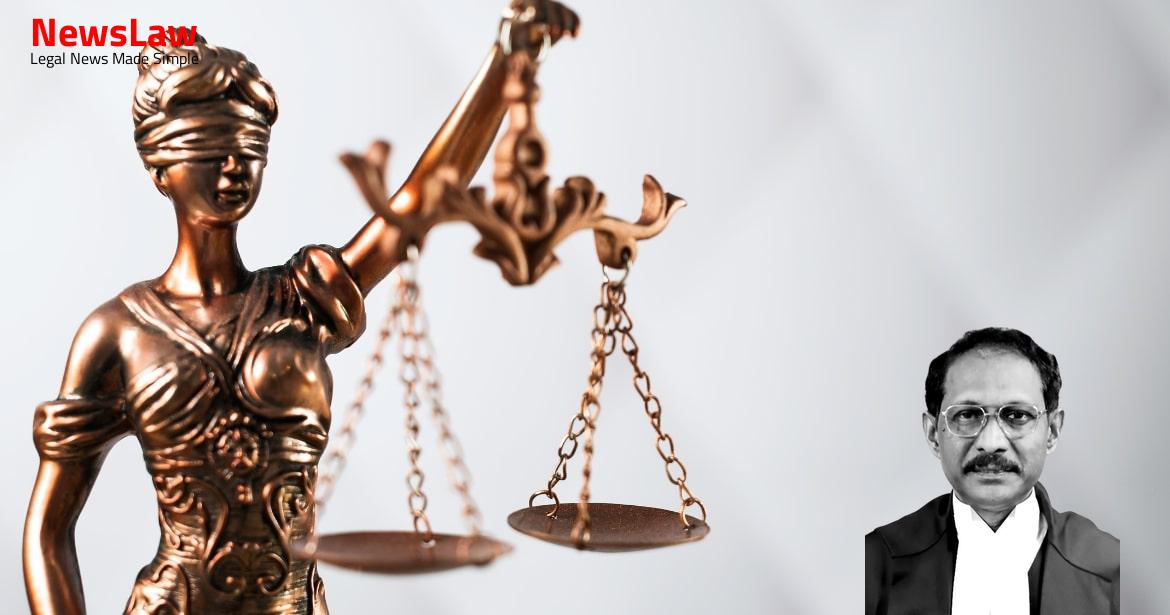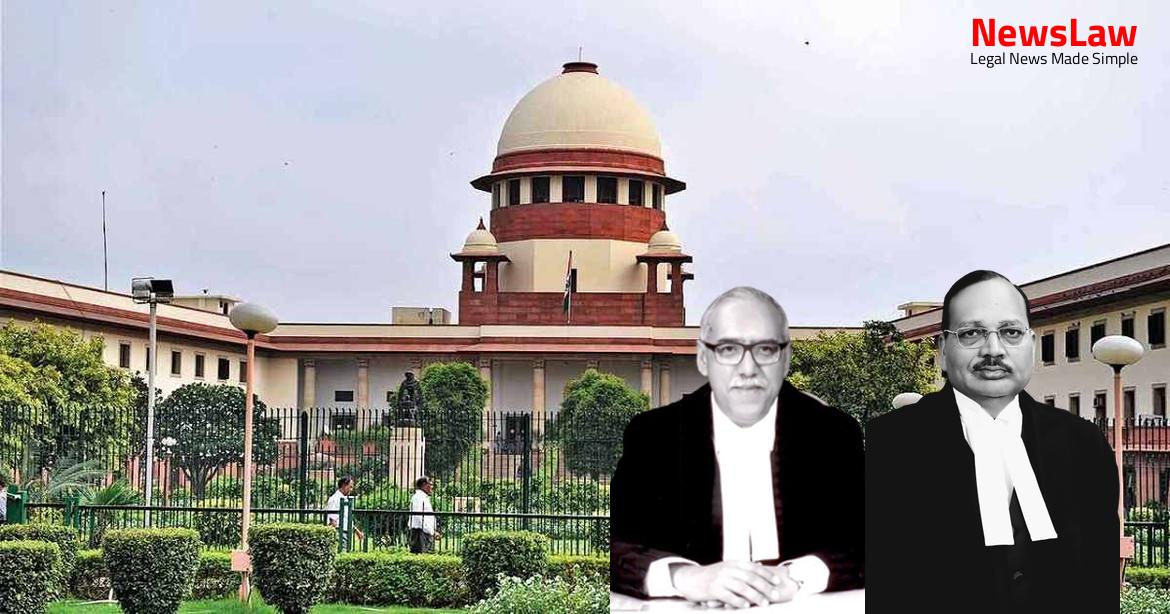In a landmark decision by the Supreme Court of India, the case of withdrawal of resignation by a pilot from Air India has been thoroughly examined. The judgment discusses the unique considerations for pilots in air transport undertakings and emphasizes the importance of notice periods for a smooth transition. Stay informed about the legal principles governing the withdrawal of resignation in vital sectors like aviation.
Facts
- The respondent had withdrawn his resignation and requested to be rostered for future flights from 02.01.2018.
- A letter was received from the Advocates of the respondent stating the withdrawal of resignation.
- The respondent was given 6 months’ leave which was to expire on 25.05.1947.
- The Writ Petition challenging the letters dated 02.09.2017 and 04.01.2018 was filed by the respondent before the High Court.
- The Division Bench of the High Court affirmed the view taken by the Single Judge in favor of the respondent in the Writ Petition.
- An objection regarding territorial jurisdiction was rejected by the appellants.
- The submission that the age of retirement was 60 years was also rejected by the Court.
- The officer withdrew his resignation before the date could be intimated and a formal notification could be issued.
- An officer’s challenge regarding the effective date of resignation was rejected by the High Court.
- The resignation was held to become effective on the date the Government of India accepted it.
- The letters written by the officer did not indicate that the resignation was not effective until acceptance was informed.
- The Division Bench of the High Court rejected the challenge in a judgment dated 09.04.2018.
- The Division Bench relied on previous court decisions to support the idea that a resignation could be withdrawn before actual relief from service.
- The appellants filed a Writ Appeal against the Single Judge’s decision.
- The Division Bench confirmed the legal position that an employee can withdraw a resignation before the notice period expires.
Issue
- Whether the respondent pilot could withdraw her resignation that was tendered on 03.07.2017
Also Read: CRPF Act: Validity of Rule 27 for Compulsory Retirement – Case of Head Constable vs. CRPF
Arguments
- In normal circumstances, an employee who has tendered resignation can withdraw it before it becomes effective.
- Exceptions to this rule as per previous decisions by the court include Union of India v. Gopal Chandra Mishra and Balram Gupta v. Union of India.
- Pilot positions were considered differently by the CAR due to the unique nature of their roles and the cost involved in finding replacements.
- The concerned Government servant was to attain the age of 55 years on 26.11.1946.
- The law allows an employee to withdraw a resignation before it comes into effect.
- Resignation submitted was to come into effect from a prospective date, allowing the respondent to withdraw it before going into operation.
- The appellant had taken steps for finding and training an alternative pilot, falling within exceptions acknowledged by the Court.
- The fact that the appellant had to incur expenditure in training another pilot was deemed irrelevant due to the regular nature of such requirements for an organization like Air India.
- The respondent was not allowed to join her duties after tendering her resignation, moving on to work as a pilot with Jet Airways until its operations closed. Currently, she is not employed as a pilot in any airline.
- The circumstances under which an employee can withdraw a resignation and the limitations to this right have been discussed in various decisions by the Court.
Also Read: DAMEPL vs. DMRC: Curative Petition and Arbitral Award Restoration
Analysis
- CAR provides guidelines for notice period regarding pilots and employers.
- Pilots are not allowed to refuse flight duties during notice period.
- The employer cannot deprive the pilot of legitimate rights and privileges during the notice period.
- If a pilot resigns in writing, the resignation is immediate and cannot be withdrawn.
- The judgement discussed the concept of ‘prospective resignation’ in the context of pilots in air transport undertakings.
- It emphasized the importance of notice periods for pilots intending to leave their jobs to ensure a smooth transition and prevent last-minute flight cancellations.
- The judgement highlighted that withdrawal of resignation is typically allowed until it becomes effective, subject to specific regulations and terms of employment.
- It mentioned the necessity for air transport undertakings to find suitable replacements within the notice period to avoid disruptions in services.
- The ruling underscored the significance of public interest over individual employee interests when it comes to resignation practices in vital sectors like aviation.
- The judgement clarified that provisions for withdrawal of resignation may vary depending on the governing regulations and must align with the terms and conditions of employment.
- Public servants cannot withdraw their resignation after it is accepted by the appropriate authority unless there is a law or rule governing the conditions of service that allows for it.
- The case of Union of India and others v. Gopal Chandra Mishra and others established principles that have been followed in subsequent cases.
- Regulation 20 of Punjab National Bank Officers Service Regulation, 1979 required officers to give three months’ notice in writing before resigning.
- No rule under Article 309 of the Constitution states that an order accepting resignation must be communicated to be effective.
- An order of dismissal must be communicated to the officer concerned to take effect.
- The termination of employment by government order only becomes effective once communicated to the employee.
- The CAR highlights the importance of giving a minimum notice period before resigning to avoid disruptions in services like flight cancellations.
- Modern principles advocate for not restricting people’s freedom to change their decisions.
- The notice period of six months was a requirement under the CAR and the terms of the appointment.
- The intimation of resignation from the respondent was clear and unequivocal.
- The option to leave the company without completing the notice period was available if the respondent was forced to stay away from home for extended periods during the notice period.
Decision
- Captain G.K. Sandhu submitted her resignation on 03.07.2017.
- Company policy required a 6-month notice period for resignation.
- The company accepted Sandhu’s resignation and appointed a replacement pilot.
- Sandhu later attempted to withdraw her resignation through an email on 18.12.2017.
- The company did not allow the withdrawal of the resignation.
- The court held that Sandhu could not retract her resignation.
- The court allowed the appeal and dismissed the writ petition.
- The company incurred training costs for the replacement pilot.
Case Title: AIR INDIA EXPRESS LTD. Vs. CAPT. GURDARSHAN KAUR SANDHU
Case Number: C.A. No.-006567-006567 / 2019



